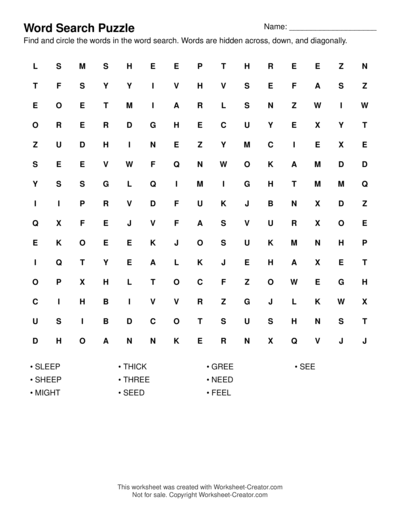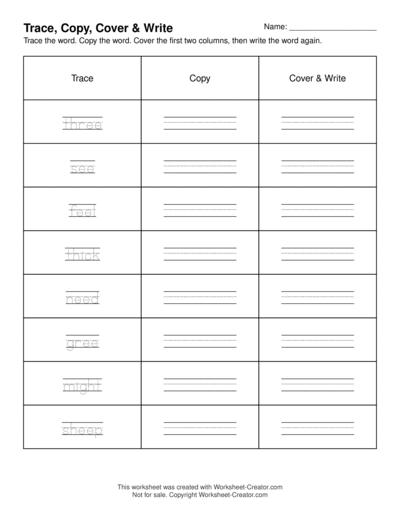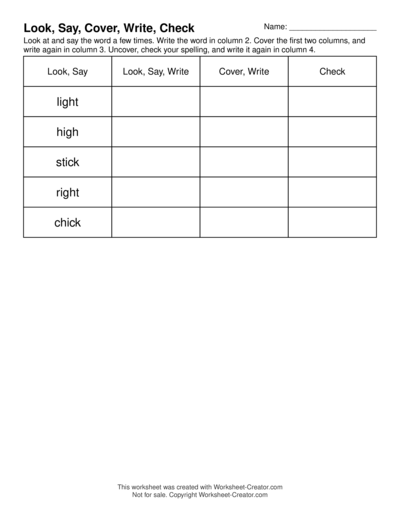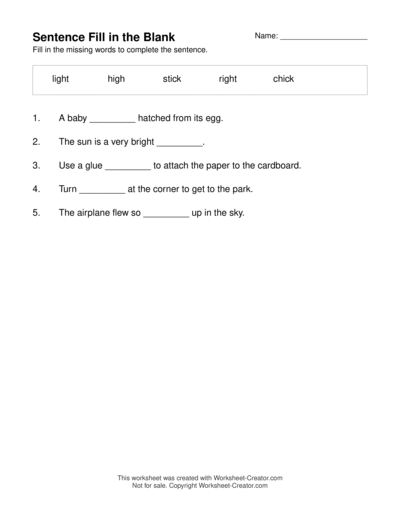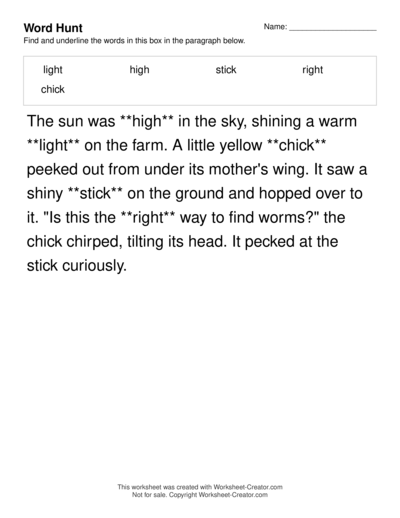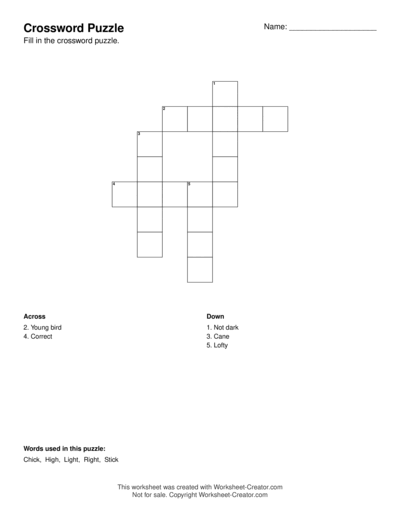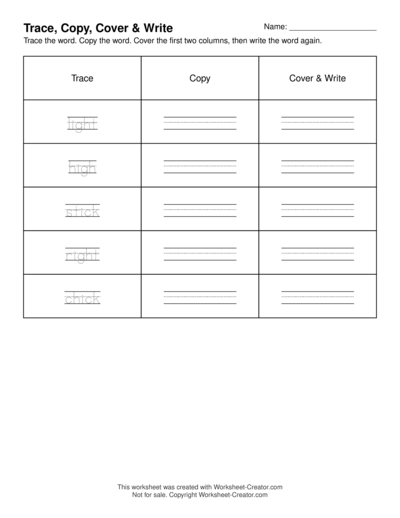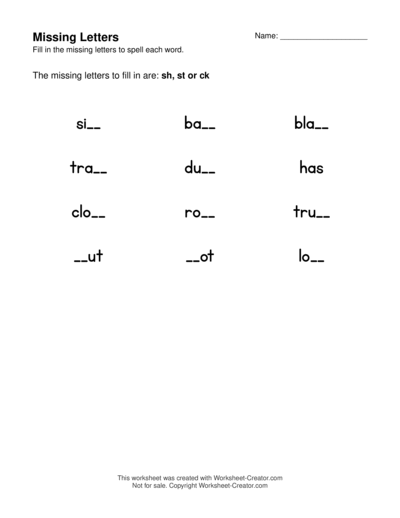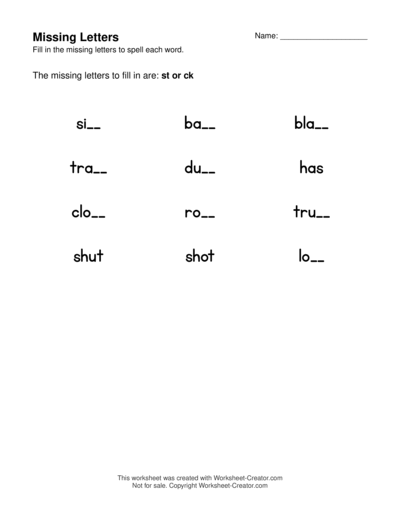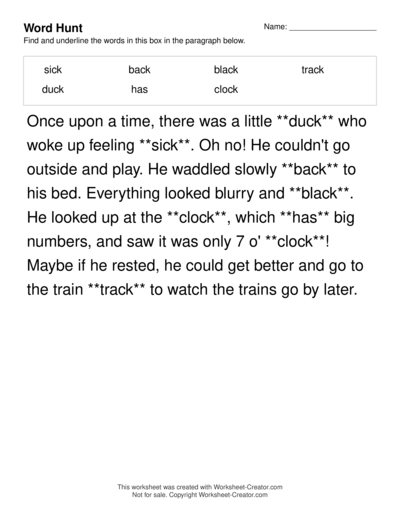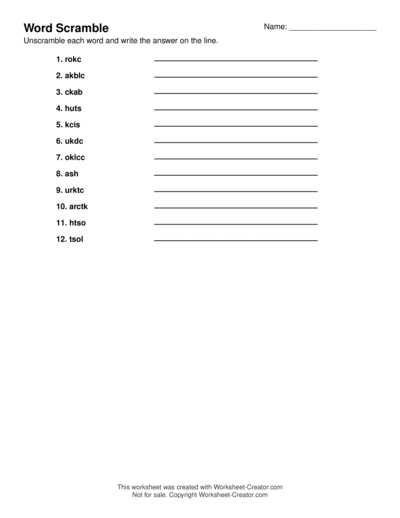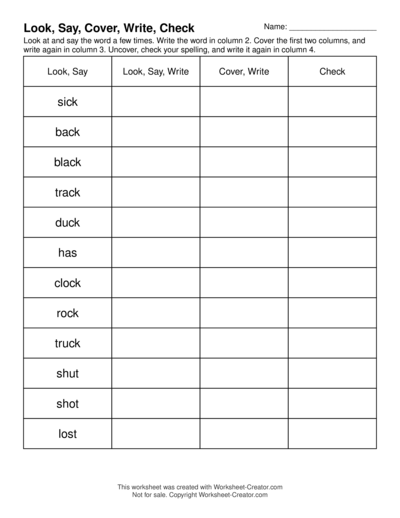The Worksheet Creator Store
These Worksheets have been created by teachers and are in use in classrooms today.
Search and filter worksheets by template, grade level, and words used.
If you find one you like, you can purchase it for $2.99.
Or, purchase a full year of worksheet downloads for $29.99.
Don't see what you're looking for? Contact us

Word Search Puzzle
Words used: three, see, feel, thick, need, gree, might, sheep, sleep, seed
For grade level: 2nd Grade
Created by: A. Clark
Trace, Copy, Cover & Write
Words used: three, see, feel, thick, need, gree, might, sheep, sleep, seed
For grade level: 2nd Grade
Created by: A. Clark
Look, Say, Cover, Write, Check
Words used: light, high, stick, right, chick
For grade level: 2nd Grade
Created by: A. Clark
Sentence Fill in the Blank
Words used: light, high, stick, right, chick
For grade level: 2nd Grade
Created by: A. Clark
Word Hunt
Words used: light, high, stick, right, chick
For grade level: 2nd Grade
Created by: A. Clark
Crossword Puzzle
Words used: light, high, stick, right, chick
For grade level: 2nd Grade
Created by: A. Clark
Trace, Copy, Cover & Write
Words used: light, high, stick, right, chick
For grade level: 2nd Grade
Created by: A. Clark
Missing Letters
Words used: sick, back, black, track, duck, has, clock, rock, truck, shut, shot, lost
For grade level: 2nd Grade
Created by: A. Clark
Missing Letters
Words used: sick, back, black, track, duck, has, clock, rock, truck, shut, shot, lost
For grade level: 2nd Grade
Created by: A. Clark
Word Hunt
Words used: sick, back, black, track, duck, has, clock, rock, truck, shut, shot, lost
For grade level: 2nd Grade
Created by: A. Clark
Word Scramble
Words used: sick, back, black, track, duck, has, clock, rock, truck, shut, shot, lost
For grade level: 2nd Grade
Created by: A. Clark
Look, Say, Cover, Write, Check
Words used: sick, back, black, track, duck, has, clock, rock, truck, shut, shot, lost
For grade level: 2nd Grade
Created by: A. Clark
Are you looking for worksheets for a specific grade level?
We've curated a collection of templates, generators, and pre-created worksheets for each grade level.

Kindergarten
Browse our collection of worksheets specifically designed for Kindergarten students. Find grade-appropriate activities, templates, and pre-created worksheets.
View Kindergarten Worksheets
1st Grade
Browse our collection of worksheets and resources specifically designed for 1st Grade students. Find grade-appropriate activities, templates, and pre-created worksheets.
View 1st Grade Worksheets
2nd Grade
Browse our collection of worksheets specifically designed for 2nd Grade students. Find grade-appropriate activities, templates, and pre-created worksheets.
View 2nd Grade Worksheets
3rd Grade
Browse our collection of worksheets specifically designed for 3rd Grade students. Find grade-appropriate activities, templates, and pre-created worksheets.
View 3rd Grade Worksheets
4th Grade
Browse our collection of worksheets specifically designed for 4th Grade students. Find grade-appropriate activities, templates, and pre-created worksheets.
View 4th Grade Worksheets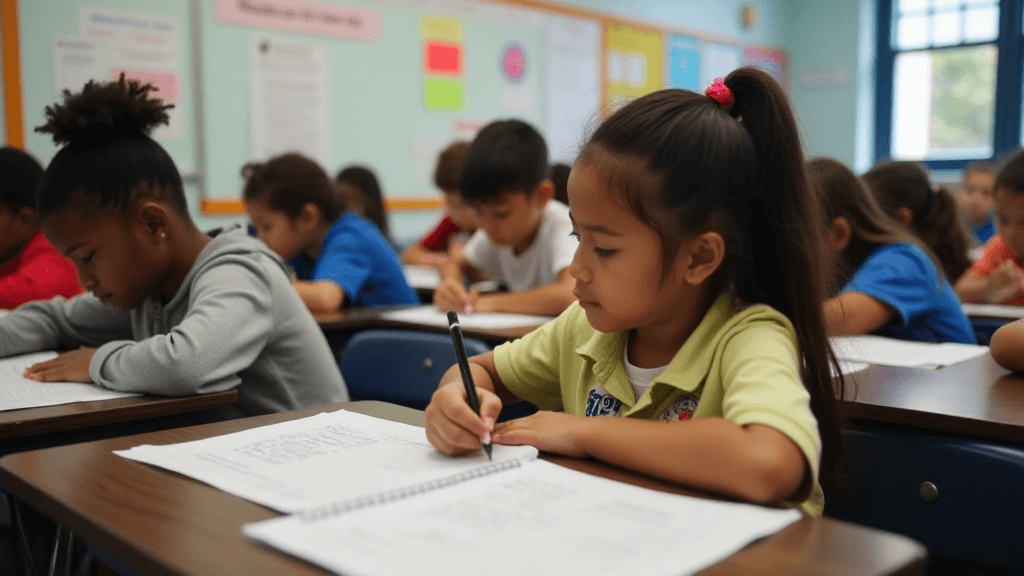
5th Grade
Browse our collection of worksheets specifically designed for 5th Grade students. Find grade-appropriate activities, templates, and pre-created worksheets.
View 5th Grade Worksheets
6th Grade
Browse our collection of worksheets specifically designed for 6th Grade students. Find grade-appropriate activities, templates, and pre-created worksheets.
View 6th Grade Worksheets
7th Grade
Browse our collection of worksheets specifically designed for 7th Grade students. Find grade-appropriate activities, templates, and pre-created worksheets.
View 7th Grade Worksheets
8th Grade
Browse our collection of worksheets specifically designed for 8th Grade students. Find grade-appropriate activities, templates, and pre-created worksheets.
View 8th Grade Worksheets